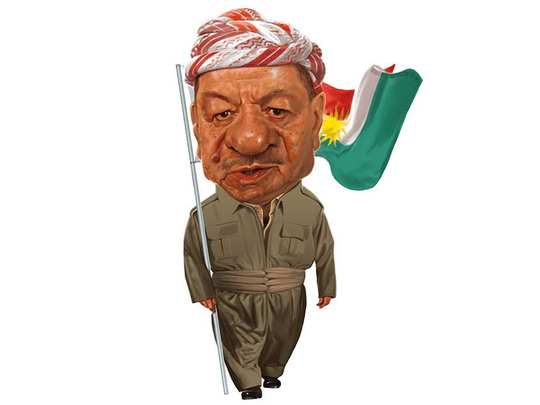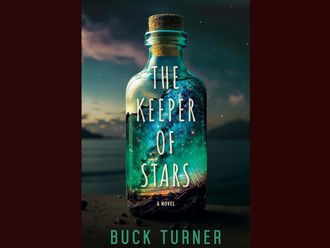
The forthcoming referendum on independence planned for Monday in North Iraq (South Kurdistan as the Kurds prefer to call it), is also an occasion of the greatest challenge ever that will determine the fate of not only the 70-year-old Iraqi Kurdish president himself, but more importantly the future of the entire Kurdish national project the Kurds have long advocated. It goes without saying, Kurds, like any other people on the planet, should enjoy their natural rights, including the right to independence if, and when, they wish, and Masoud Barzani grew overwhelmingly under such culture.
At the time of Masoud’s birth, his father, the late Mustafa Barzani, was the Kurdish army chief-of-staff of the first short-lived ‘independent’ Kurdish Republic of Mahabad in Iranian Kurdistan (January-December 1946), briefly supported along the Autonomous Republic of Azerbaijan in northern Iran, by the Soviet Union in mid 1940s. Masoud was born on the day that the Kurdistan Democratic Party (KDP) was founded, on August 16, 1946. He noted in his own words: “I was born in the shadow of Kurdistan flag in Mahabad and I am ready to serve and die for that same flag.”
When the Mahabad Republic fell through, Mustafa and many hundreds of his followers fled to Russia before returning to Iraq 12 years later, following the declaration of the new Republic of General Abdul Karim Qasim that viciously overthrew the Iraqi monarchy in 1958 in a bloody and ugly coup. (Incidentally, Abdul Karim himself was killed by the person who overthrew him — General Abdul Salam Arif in February 1963).
However, the senior Barzani soon found himself at odds with General Qasim who, having welcomed the Barzani clan and many thousands of their followers back into Iraq three years earlier, rescinded on his promises to the Kurds and other ethnic groups that constitute Iraq’s social mosaic. In 1961, KDP, under the leadership of Mustafa, launched an armed rebellion, demanding that the central government in Baghdad recognise the rights to establish an autonomous rule in Iraq’s Kurdistan.
On his part, Masoud joined the Kurdish nationalist guerrilla organisation, Peshmerga, at an early age of 16. His father was the role model whose skills and compassion influenced the young Barzani to become the future leader of the ‘mountainous people of Kurdistan’ from their modern capital, Erbil. The young Barzani’s leadership qualities elevated him to the position of leading the Kurdish delegation, with his late elder brother Idris alongside their father, to the negotiation with Baghdad’s government that eventually led to the signing of the March 1970 autonomous agreement, signed by Mustafa Barzani and the then Iraq’ strongman, former president late Saddam Hussain.
Soon after the death of his father in March 1979, Masoud was elected as the new leader of the KDP at the party’s ninth congress and has been re-elected to this position repeatedly in successive congresses since then. Though he has not completed any formal studies, unlike some of his eight children, Masoud gained his political and military knowledge from closely working with his father in the “fields of confrontation with adversaries”, as he is often quoted, for at least two decades. Masoud, who is passionately known for his love of football, managed to document his father in a three-volume book in Arabic, titled Mustafa Barzani and the Kurdish Liberation Movement in Arabic. The first volume is available in English and Turkish as well.
The main challenge
Nevertheless, the question remains whether Masoud will be able to deliver on his promises. Despite the strong opposition to the idea of referendum by neighbouring countries, particularly Iran and Turkey, and some of the world’s most powerful countries, including the United States, Russia and Britain, maintaining unity among the various Kurdish political groups remain the main challenge upon which rests the future of the referendum. Passing the referendum is the easiest hurdle on the long road to complete independence.
Nonetheless, Masoud had to fight on many fronts before he eventually convinced most of the Kurds to ride on the referendum bandwagon. Kamran Karadaghi, a veteran Kurdish politician and writer tells me whether people like his policies or not, “the fact remains that Barzani has started this process (of referendum) almost single-handedly and successively managed to overcome huge difficulties that many people thought were impossible to overcome and create the necessary momentum for the widest support ever for his quest”.
No challenge
Even as some tend to criticise Masoud’s style of running a government, when it comes to conducting talks over the referendum, he has shown what it takes to lead and unify a disparate group. At the beginning of the talks, the main rival party in Kurdistan, the Patriotic Union of Kurdistan (PUK) — founded in exile in Damascus in 1975 by Iraq’s first democratically elected President, Jalal Talabani — was either against the idea of a referendum or undecided about it, but Masoud eventually managed to convince the PUK leadership to come on board. They realised that no one at this critical moment of the Kurds’ history can challenge Masoud’s leadership without inflicting wounds upon themselves.
Masoud was, however, shrewd enough to predict that a party such as the PUK, that was originally established on the premise of the quest of an independent Kurdistan, would not object to the opportunity of getting closer to it. By creating the momentum for a referendum and bringing PUK on board, Barzani has significantly weakened and isolated the ‘Goran Movement’ (movement for change) that opposes both the KDP and PUK on the one hand and the referendum on the other.
But the most serious concern for Masoud right now is how the US will react and whether Washington will take any punitive measures against Erbil after the referendum.
Mustapha Karkouti is a columnist and former president of the Foreign Press Association, London. You can follow him on Twitter at @mustaphatache.








